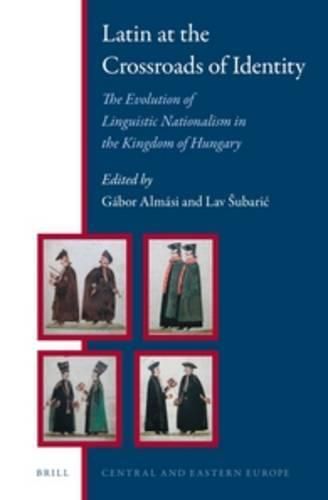Readings Newsletter
Become a Readings Member to make your shopping experience even easier.
Sign in or sign up for free!
You’re not far away from qualifying for FREE standard shipping within Australia
You’ve qualified for FREE standard shipping within Australia
The cart is loading…






From the late 18th century in the multi-ethnic Kingdom of Hungary, new language-based national identities came to dominate over those that had previously been constructed on legal, territorial, or historical basis. While the Hungarian language struggled to emancipate itself, the roles and functions of Latin (the official language until 1844) were changing dramatically. Latin held a different significance for varying segments of society, from being the essential part of an individual identity to representing an obstacle to national survival ; from guaranteeing harmony between the different linguistic communities to hindering change, social and political justice. This pioneering volume aims to highlight the ways language debates about Latin and Hungarian contributed to the creation of new identities and ideologies in Central Europe.
Contributors include Gabor Almasi, Per Pippin Aspaas, Piroska Balogh, Henrik Hoenich, Laszlo Kontler, Istvan Margocsy, Alexander Maxwell, Ambrus Miskolczy, Levente Nagy, Nenad Ristovic, Andrea Seidler, Teodora Shek Brnardic, Zvjezdana Sikiric Assouline, and Lav Subaric
$9.00 standard shipping within Australia
FREE standard shipping within Australia for orders over $100.00
Express & International shipping calculated at checkout
From the late 18th century in the multi-ethnic Kingdom of Hungary, new language-based national identities came to dominate over those that had previously been constructed on legal, territorial, or historical basis. While the Hungarian language struggled to emancipate itself, the roles and functions of Latin (the official language until 1844) were changing dramatically. Latin held a different significance for varying segments of society, from being the essential part of an individual identity to representing an obstacle to national survival ; from guaranteeing harmony between the different linguistic communities to hindering change, social and political justice. This pioneering volume aims to highlight the ways language debates about Latin and Hungarian contributed to the creation of new identities and ideologies in Central Europe.
Contributors include Gabor Almasi, Per Pippin Aspaas, Piroska Balogh, Henrik Hoenich, Laszlo Kontler, Istvan Margocsy, Alexander Maxwell, Ambrus Miskolczy, Levente Nagy, Nenad Ristovic, Andrea Seidler, Teodora Shek Brnardic, Zvjezdana Sikiric Assouline, and Lav Subaric